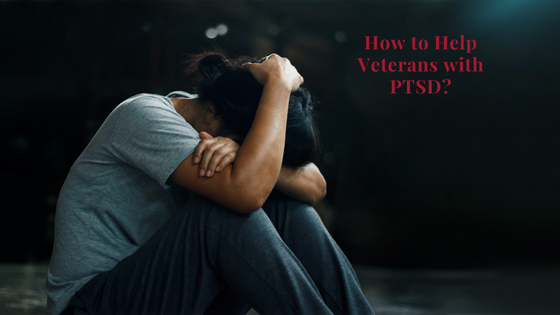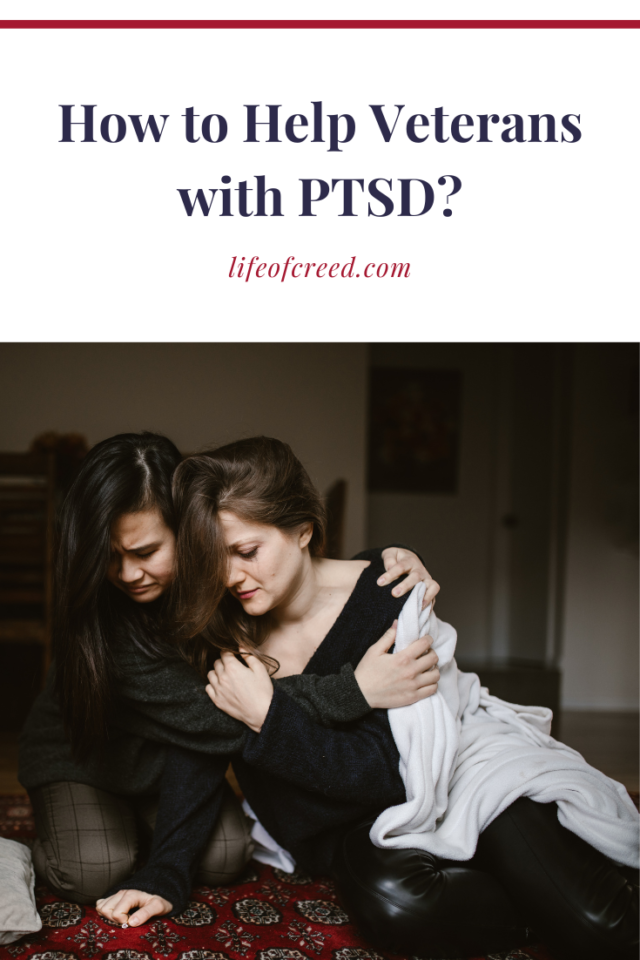
Post-traumatic stress disorder (PTSD) is a debilitating mental health condition experienced by many veterans. For those who have served in the military, PTSD can result from traumatic experiences such as combat or sexual assault.
Unfortunately, it can be difficult to diagnose and difficult to treat. That’s why it’s important for providers, caregivers, and family members of veterans to know how to support those struggling with PTSD. Here are some tips on how you can help a veteran in your life who is dealing with this condition.
Disclosure: Some of the links below are affiliate links. This just means that if you choose to make a purchase, I may receive a small commission, at no extra cost to you. Thanks for reading and supporting – any commission made is put towards keeping Life of Creed up and running. Read full the disclosure policy here.
Get Educated About PTSD
The first step in helping a veteran with PTSD is understanding the condition. Learn about the symptoms of PTSD so you can recognize when someone may need help or support. Knowing more about the causes and treatments for PTSD will also help you better understand what your loved one may be going through and give you ideas for ways that you can help them manage their symptoms. Many organizations offer resources and information on PTSD tailored to veterans, so take advantage of these sources whenever possible.
How Many Veterans Suffer from PTSD?
The exact number of veterans suffering from PTSD is difficult to determine because many do not seek treatment or are not diagnosed until years after they leave the military. Studies suggest that anywhere between 11% and 20% of veterans of the Iraq and Afghanistan wars suffer from PTSD. The same studies show that 30% of Vietnam War veterans suffer from the disorder, while 12% of Gulf War veterans and 15% of World War II vets are affected by it.
Be Supportive
When someone has been diagnosed with PTSD, it can be easy to become overwhelmed or feel like there’s nothing you can do to help them. But providing emotional support is one of the most important things that any caregiver or family member of a veteran with PTSD can do. Offer reassurance that they are not alone and encourage them to talk openly about their feelings—even if it means being patient as they process their emotions in their own time.
Additionally, spending quality time together and engaging in activities outside of talking about their condition helps reduce stress levels while establishing trust and connection between two people—which is especially important if they don’t feel comfortable seeking professional help from a psychologist or therapist yet.
Connect Them With Resources
Many resources are available for those struggling with PTSD, but veterans might not always know where to find them or how best to access them. Connecting veterans with helpful resources such as VA hospitals, crisis hotlines, counseling services, job assistance programs, and more can go a long way toward helping them manage their symptoms and live healthier lives overall.
It’s also important to make sure that these resources are tailored specifically towards veterans; doing so ensures that they have access to specialized care that considers their unique military experiences.
How Many Veterans Suffer from PTSD?
The exact number of veterans suffering from PTSD is difficult to determine because many do not seek treatment or are not diagnosed until years after they leave the military. Studies suggest that anywhere between 11% and 20% of veterans of the Iraq and Afghanistan wars suffer from PTSD. The same studies show that 30% of Vietnam War veterans suffer from the disorder, while 12% of Gulf War veterans and 15% of World War II vets are affected by it.
The effects of PTSD among veterans are real and should not be ignored or taken lightly—it’s essential that we take steps toward providing appropriate support for those affected by this condition, so they don’t feel alone in dealing with their struggles. If you know someone who has served in the military and is exhibiting signs of PTSD, reach out—a little bit goes a long way in helping them cope with their trauma and build resilience against its effects over time.
If you are struggling with PTSD-related issues as a veteran, please make sure you seek help from your local VA hospital as soon as possible – your life matters! Your treatment options might vary depending on your circumstances, but seeking help should always be your first step! Let’s work together towards creating communities where every veteran feels supported!

Written by Hima Gandham
More From This Category

Alternative Ways To Study A College Degree
When thinking of going to college – or when helping your kids to choose a college course – it’s worth exploring all your options. Many people don’t realize that there are many ways to study a degree. Here are just a few alternative ways to get a college degree and the...

Tips that will Help you Support your Mental Health
If you feel as though your mental health has dived lately, then it is so important that you do something about this. If you don’t, then it may get worse over time, and this is the last thing you need. If you want to try and do something about this, then take a look...

Faith of Our Fathers | Movie Review
Follow along as John Paul and Wayne go on a road to the Vietnam wall in the movie Faith of Our Fathers. A story of two guys searching to understand their father's and their time in war. I didn't know where to start with my review on this movie. I watched it a...



0 Comments